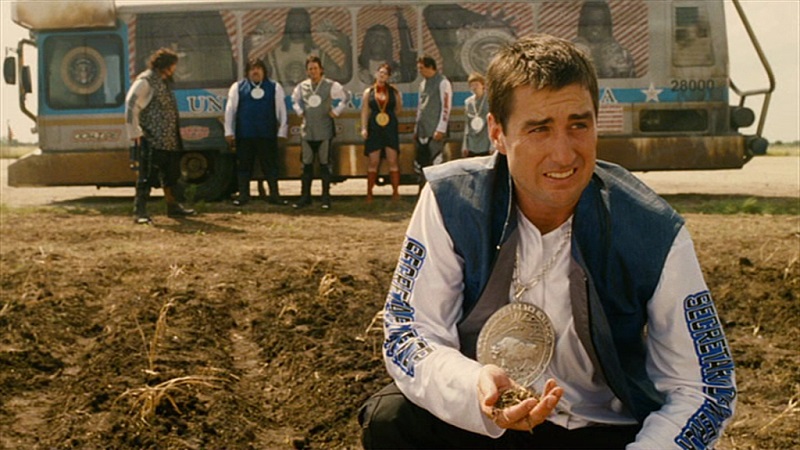Bonnie shares her tale of Grazon damage:
I had been purchasing hay from the same seller for years. Then the manure and composted bedding from my goats, horses and cows caused the typical grazon damage. Talked with my hay guy, but it happened again even after I dug out all the bad compost in my 3 foot deep raised beds. Put in compost from the supposedly not sprayed hay and it happened again. Now, I have had to stop buying hay from this guy. I only buy hay that is has alfalfa in it or lots of clover. Love it if there are a few broadleaf weeds in there as do my goats. Heck even my rabbits manure was bad because I was feeding them the same hay. In one of my raised beds, that I didn’t dig out because it is 40 feet long 40 inches wide and 4 feet deep, I only planted brassicas for two years, I test planted some tomatoes and potatoes in it last year and it is fine. I grew corn in another possibly effected raised bed and last summer, I was happy to see that raised by infested by some broadleaf weeds. The areas around my hay feeders had become clear of broadleaf weeds, even smartweed. The weeds are coming back now. Pain in the backside.
If it hadn’t been for your articles, I would never have know what was wrong, the local Extension office told me it was drift from crops being sprayed but that didn’t explain why it kept happening every time I planted in that compost/soil. I also throw bean seeds in previously contaminated beds and if the beans grow okay, then I know the bed is okay to plant in.
It really feels like we’re living in a post-apocalyptic nightmare. It’s a combination of malevolence, Satanism, greed, and downright stupidity.

“But Grazon’s got electrolytes!”
Grazon may be the worst destroyer of gardens in American history. It’s insidious, finding its way into hay, manure, compost and even potting soil mixes. The long-term damage it causes and the downstream effects are horrifying.
And I’m not surprised the local Extension wasn’t helpful. They didn’t have a clue when I called them years ago to ask about the weird symptoms I was seeing across my garden beds and perennial plantings.
They’re also paid NOT to see this sort of thing, as they are funded by the very entities that make big bucks off of poison farming.
It’s imperative that we stop trusting the mainstream sources and start building our own alternative networks. We need to produce our own chemical-free compost and encourage small farmers that refuse to give in to the evil corporatocracy.
Learn to compost everything, and be relentless about asking questions and sharing the truth.
Finally, don’t spray poison – and don’t go with girls that do.


5 comments
Drift stinks. The following email from Fedco Seeds today does not involve Grazon, but it does involve drift of fungicide. Aerial spraying makes life interesting out in the country.
” Sharp-eyed customers will notice fewer organic and more conventional pea listings this year. Why? A big crop of organic pea seed we contracted was inadvertently sprayed with a fungicide meant for a neighbor’s alfalfa field. (A new pilot of the spray plane did his bypass over-run perpendicular to the usual spray pattern and 100′ into the organic peas.) The peas could no longer be certified organic, and the farmer will spend three years in transitional status before that field can be certified again. He also loses that field in his crop rotation, or can choose to grow crops on it and manage them organically, but will fetch conventional prices on the open market for them.
We are honoring our contract with the farmer and selling his peas as conventionally grown. They still adhere to our buying policies for conventional, untreated seed*. The varieties affected are Green Arrow, Blizzard, Sugar Ann and Sugar Snap.
We think it’s critical to support our hard-working farmers through tough times.
We hope our customers will feel the same.”
I asked a gardener in our new state, West Virginia, where she git gay, and if she could know there was no grazon. She said most everybody here grows hay, it’s easy to get, and she has never seen anyone spray anything. We are far from the new trends in the garden world, and also, she never heard of gtazon. I encouraged her to search aminopyralids, as she had rattled off tree and bush names, varieties of all kinds of things growing on our land, as we hiked. Hard to know, will it offend the guys with hay if I ask? We have some hay here, it’s not been hard to rake, just time…hoping to use the resources here. Thanks fir trying to keep warning folks, the stories of loss are hard.
:It’s imperative that we stop trusting the mainstream sources and start building our own alternative networks. We need to produce our own chemical-free compost and encourage small farmers that refuse to give in to the evil corporatocracy.”
This is what we are attempting to do at the Crusade Channel, with Mike Church. Every Friday we do a segment called Free Farm Friday, where we discuss topics related to growing our food and networking with our extended Crusader family. We focus on Regenerative Agriculture Principles, but understand that sometimes there’s a need for tillage or other things to make stuff work. Check out the archives, we’ve been doing the segment for 2 years already.
https://crusadechannel.com/mike-church-show-free-farm-friday-archives/
Dominus Tecum
Brian K
Cool. Good luck!
It’s super frustrating, since I haven’t had any luck finding a clean source of hay around here (and hay sellers are few and far between). We have goats, sheep, horses, pigs, and rabbits that all need supplemental hay. We are sloooooowly working towards having everyone grazing rotationally, but we are working with a relatively small acreage (8 acres), and we have to clean up horrific hurricane damage/debris as we go (“Ah, lovely, a whole line of barbed wire fencing that blew over from the neighbors that has been hidden by overgrowth and downed trees. Glad we found it before the animals”). Finally got up a good perimeter fence a few months ago, but still have to move enough dirt to the base of the fence to even it out, and keep the smaller livestock from escaping under it. The to do list is overwhelming, for sure.
I’m hoping once we are rotating small pastures, we won’t need to bring in hay, or at least it’ll be less of it. I hate not being able to trust my own livestock manure!
Comments are closed.